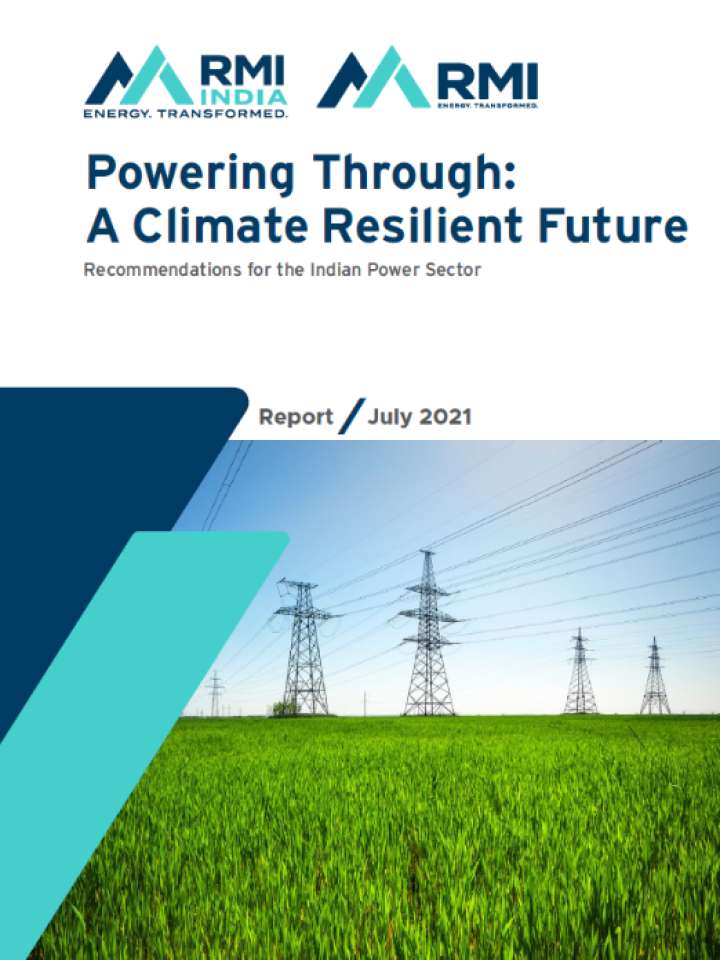Powering through: A climate resilient future: Recommendations for the Indian power sector
This report seeks to describe the need for power sector resilience in India, review the main barriers in the way of building power sector resilience in India, and define areas of action for different stakeholder groups in the power sector. Reliable and secure power systems are critical to modernising societies by way of providing quality healthcare, education, livelihoods (including agriculture), businesses, transport, etc. Given India’s inarguably ambitious climate and energy goals, as well as the significant role that electricity plays in enabling sustainable development, power sector resilience assumes more importance.
This report finds that work at the policy and planning level needs to be bolstered by financial institutions, whose renewed understanding of clean energy and climate risks can facilitate experimentation and implementation of the right technology and management practices on both supply and demand sides. Ensuring flexibility, reliability, and adaptation of the sector is key. Adaptation also sets resilience apart from risk management. There is no single solution to the vagaries that India’s current power system faces including those of extreme weather and long-term climate risks. However, resilience does demand iterative planning as a consistent feature. The actions for resilience outlined in this document must be considered on an accelerated timeline, given the socio-economic imperatives for a country like India, as well as the potential avoided costs of inaction. Power sector stakeholders at different levels need to assume appropriate roles and responsibilities to successfully mainstream resilience into power sector planning.
Explore further
